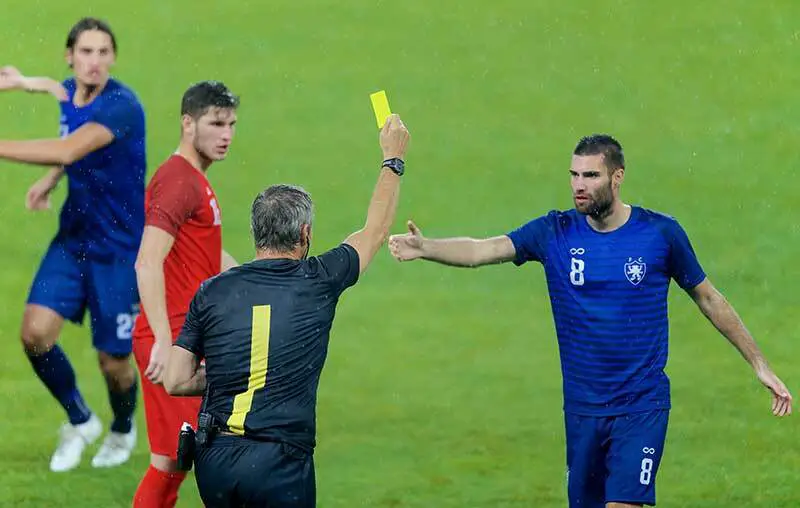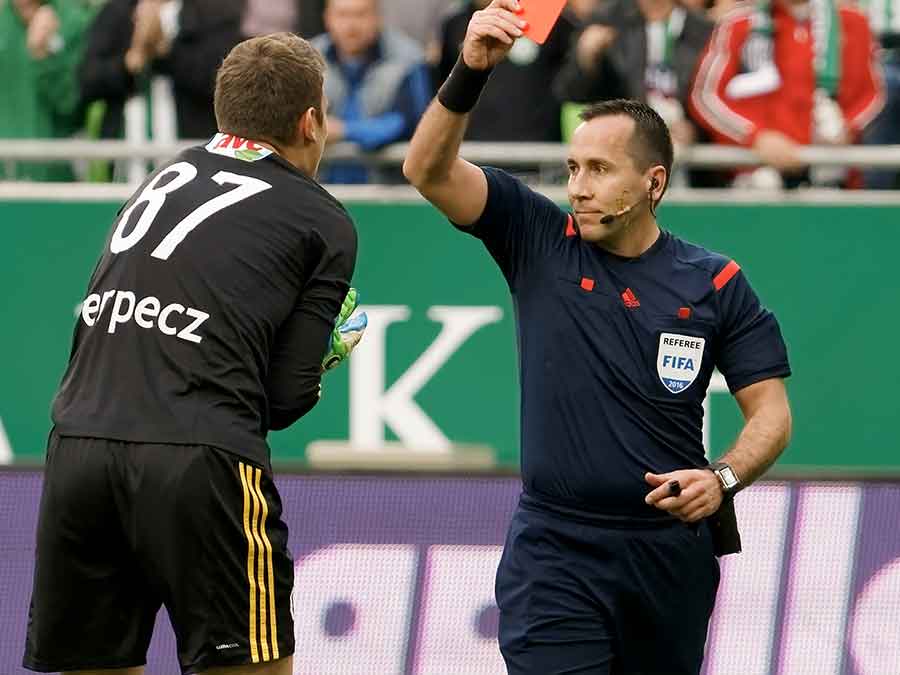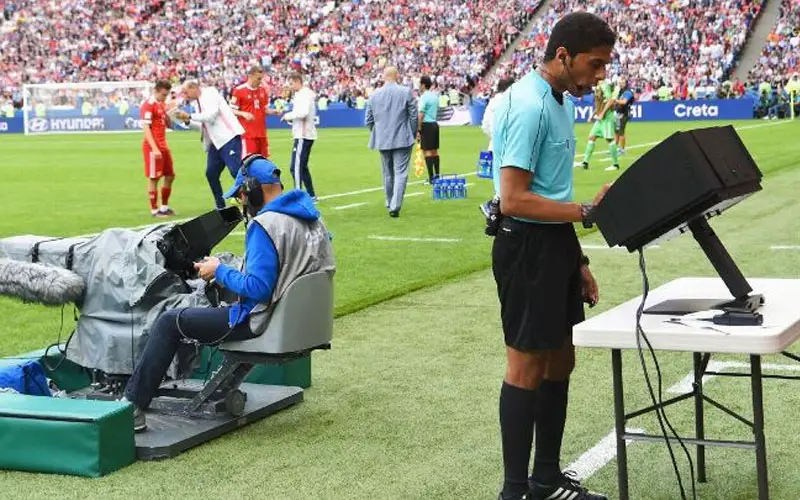Referee
What is a Referee in Soccer? Essential Roles and Responsibilities
In the world of soccer, the referee plays a crucial role in ensuring fair play and maintaining the integrity of the game. Tasked with enforcing the rules and making important decisions, the referee is the ultimate authority on the field. As the game continues to evolve and attract increased attention, the role of the referee has grown in importance and is now recognized as a major component of a well-organized and enjoyable soccer match.
Referees are responsible for interpreting and applying the Laws of the Game, as well as making decisions on various incidents that occur throughout the match. Their primary objective is to ensure the safety and well-being of the players on the field, while also maintaining control of the match by penalizing fouls and infringements.
In addition to the head referee, assistant referees, and sometimes a fourth official play a vital role in supporting the main official in making accurate decisions and maintaining the flow of the game. These officials have their specific duties and responsibilities, each of them contributing to the smooth progress of a match.
Key Takeaways
- Referees enforce soccer’s rules, ensuring fair play and player safety.
- Assistant referees and additional match officials support the main referee.
- Continuous training and development is crucial for referees to stay updated with the game’s evolution.
Referee Roles and Responsibilities
Enforcing the Laws of the Game
A soccer referee is responsible for enforcing the laws of the game. They ensure that all players and team officials follow the rules set forth by the soccer governing body. This includes monitoring offsides, calling fouls, and penalizing players with yellow or red cards when necessary. Referees must apply their knowledge of the game’s laws fairly and consistently, maintaining a neutral stance towards both teams.

Ensuring Player Safety
In addition to enforcing the rules, a soccer referee is also responsible for ensuring the safety of all players on the field. They must be vigilant in identifying dangerous plays or reckless tackles that could jeopardize a participant’s well-being. By keeping a watchful eye on the game, referees contribute to a safe and fair playing environment for all involved.
Managing Time
Time management is another crucial responsibility of a soccer referee. They are in charge of keeping track of the match duration, including any added or extra time. This involves signaling the start and end of each half, as well as accounting for stoppages such as injuries or substitutions. Referees also determine whether additional time is needed to complete the match in accordance with the game’s rules.
Assistant Referees and Their Duties
Assistant referees play a crucial role in soccer matches, as they aid the main referee in enforcing the rules of the game. These professionals are responsible for several key duties, including offside decisions, throw-in and corner kick decisions, and foul and misconduct observations.
Offside Decisions
One of the primary responsibilities of an assistant referee is to judge offside situations. When a player receives a pass from a teammate while being beyond the last defender, the assistant referee raises their flag to signal the center referee to stop the game. This helps maintain fair competition and keeps the game flowing smoothly.
Throw-In and Corner Kick Decisions
Assistant referees also determine when the ball has left the field of play. They raise their flag to indicate whether a throw-in, corner kick, or goal kick should be taken. The main referee relies on the assistant referee’s decision to identify which team touched the ball last before it went out of bounds.
- Throw-in: Awarded when the ball crosses the touchline.
- Corner kick: Awarded when the defending team last touched the ball before it crossed the goal line.
- Goal kick: Awarded when the attacking team last touched the ball before it crossed the goal line.

Foul and Misconduct Observations
Another vital duty of an assistant referee is to observe instances of foul play or misconduct that may occur outside the main referee’s view. They advise the center official when they witness infringements of the Laws of the Game, which helps maintain a fair and safe playing environment. This includes identifying:
- Dangerous tackles or challenges
- Handball incidents
- Violent conduct or unsporting behavior
- Technical infractions by team officials or substitutes
In conclusion, assistant referees have essential duties that contribute to the proper officiating and management of a soccer match. They ensure that the game is played fairly and within the boundaries of the rules, ultimately benefitting the players, coaches, and fans alike.
Fourth Official and Additional Assistant Referees
Substitutions Management
The fourth official is appointed in soccer matches to assist the referee in various tasks, including managing substitutions. This involves checking the equipment of substitutes before they enter the field of play, ensuring the correct procedure is followed, and confirming the player numbers with the referee. By doing this, the fourth official helps maintain a smooth flow of the game and keeps track of any changes in the match.
Communicating with Team Officials
A key responsibility of the fourth official is to act as the communication link between the referee and team officials, such as coaches and managers. They relay information about decisions made by the referee and provide updates on the match events. This helps maintain a clear and transparent interaction between the refereeing team and the coaching staff, promoting mutual understanding and cooperation throughout the game.
Goal-line Technology and VAR Assistance
In modern soccer, technology plays a significant role in assisting referees in making the correct decisions. The fourth official, along with additional assistant referees, may be involved in the use and operation of goal-line technology and the Video Assistant Referee (VAR) system. Their input and advice can provide crucial support for the referee, ensuring that decisions related to goals, penalties, or other critical incidents are made accurately and fairly.

Additional Assistant Referees
Apart from the fourth official, a soccer match might also have additional assistant referees positioned alongside each goal. Their primary focus is observing the penalty area, identifying incidents like fouls, handballs, or infringements during corner kicks that may hinder fair play. By having a better view of the action in the area, the additional assistant referees can provide valuable information to the referee, helping to make more informed decisions in crucial moments of the game.
Referee Training and Development
Certification and Licensing
Becoming a soccer referee requires obtaining a U.S. Soccer Certified Referee status. The U.S. Soccer Referee Course aims to prepare officials for the competitive youth game, ensuring they are capable of handling their assigned age group and level. This certification ensures referees have a strong understanding of the rules and regulations of the game, providing a safe and fair environment for players.
Continuing Education
Continuing education for soccer referees is crucial for their development and ability to adapt to the ever-evolving game. Experienced referees and coaches are available to provide guidance, support, and advice through programs such as the Nebraska Referee Development Program. Participating in coaching or assessment sessions can help referees further enhance their skills and knowledge of the game.
Fitness and Evaluation
Physical fitness is an essential aspect of being a soccer referee, as it enables them to keep up with the fast-paced nature of the game. Regular fitness evaluations ensure referees maintain their agility, speed, and endurance. U.S. Soccer offers numerous resources for referees to maintain their fitness levels and enhance their on-field performance. Evaluations can measure not only physical readiness but also referees’ decision-making skills, positioning, and game management abilities.
Challenges Faced by Referees
Pressure and Criticism
Referees in soccer often face immense pressure and criticism from various sources, including players, coaches, fans, and the media. Their decisions can have a significant impact on the outcome of a match, making them subject to scrutiny and sometimes even verbal abuse. Handling this pressure requires mental strength and resilience, as referees strive to maintain their professionalism and make accurate judgments.
Decision-Making Situations
Referees must make decisions quickly and accurately, often in high-pressure situations. They need to interpret the Laws of the Game and apply them in real-time, taking into account the specific circumstances of each match. Making the correct decision is crucial, as a mistake could result in negative consequences for a team or even alter the course of the game. This responsibility requires exceptional attention to detail, knowledge of the rules, and strong decision-making skills.
Maintaining Neutrality
A soccer referee’s primary responsibility is to ensure a fair and impartial match. They must maintain neutrality in their decisions, avoiding any personal bias or favoritism. This can be challenging, especially when emotions run high, or in high-stakes games where the outcome may be particularly important to the teams involved. Referees must be diligent in maintaining their impartiality, consistently applying the rules without allowing external factors to influence their judgment.
